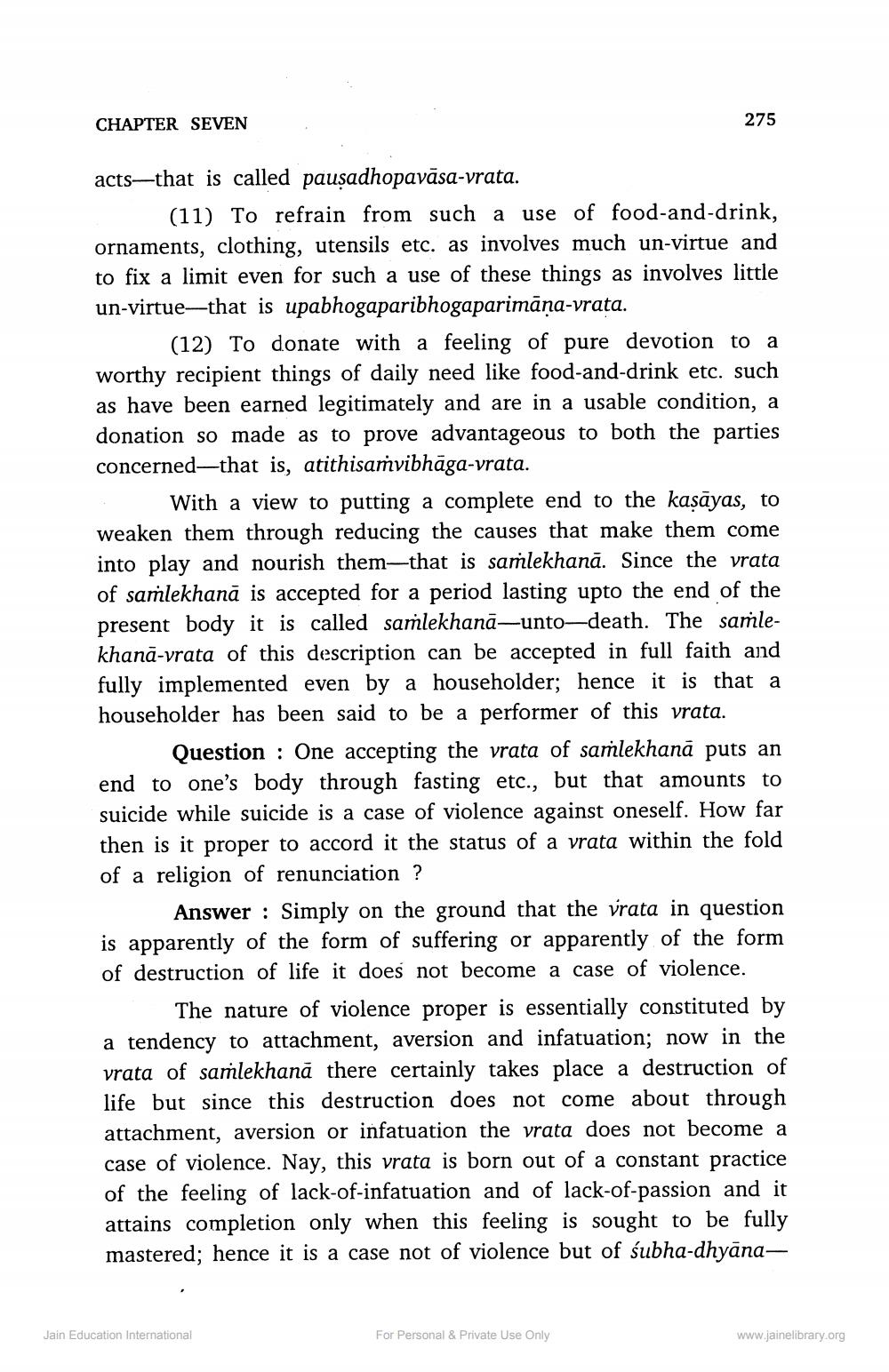________________
CHAPTER SEVEN
275
acts—that is called pausadhopavāsa-vrata.
(11) To refrain from such a use of food-and-drink, ornaments, clothing, utensils etc. as involves much un-virtue and to fix a limit even for such a use of these things as involves little un-virtue—that is upabhogaparibhogaparimāņa-vrata.
(12) To donate with a feeling of pure devotion to a worthy recipient things of daily need like food-and-drink etc. such as have been earned legitimately and are in a usable condition, a donation so made as to prove advantageous to both the parties concerned—that is, atithisaṁvibhāga-vrata.
With a view to putting a complete end to the kasāyas, to weaken them through reducing the causes that make them come into play and nourish them—that is saṁlekhanā. Since the vrata of saṁlekhanā is accepted for a period lasting upto the end of the present body it is called saṁlekhanā—unto-death. The saṁlekhanā-vrata of this description can be accepted in full faith and fully implemented even by a householder; hence it is that a householder has been said to be a performer of this vrata.
Question : One accepting the vrata of saṁlekhanā puts an end to one's body through fasting etc., but that amounts to suicide while suicide is a case of violence against oneself. How far then is it proper to accord it the status of a vrata within the fold of a religion of renunciation ?
Answer : Simply on the ground that the vrata in question is apparently of the form of suffering or apparently of the form of destruction of life it does not become a case of violence.
The nature of violence proper is essentially constituted by a tendency to attachment, aversion and infatuation; now in the vrata of saṁlekhanā there certainly takes place a destruction of life but since this destruction does not come about through attachment, aversion or infatuation the vrata does not become a case of violence. Nay, this vrata is born out of a constant practice of the feeling of lack-of-infatuation and of lack-of-passion and it attains completion only when this feeling is sought to be fully mastered; hence it is a case not of violence but of śubha-dhyāna
Jain Education International
For Personal & Private Use Only
www.jainelibrary.org




